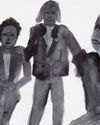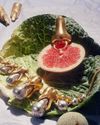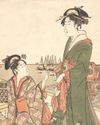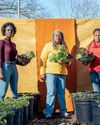
A few years ago, sitting beneath shade trees in Saratoga Springs, New York, I had a two-hour discussion with Bob Dylan that touched on Malcolm X, the French Revolution, Franklin Roosevelt and World War II. At one juncture, he asked me what I knew about the Sand Creek Massacre of 1864. When I answered, “Not enough,” he got up from his folding chair, climbed into his tour bus and came back five minutes later with photocopies describing how U.S. troops had butchered hundreds of peaceful Cheyenne and Arapahoe in Southeastern Colorado.
Given the nature of our relationship, I felt comfortable reaching out to him in April after, in the midst of the coronavirus crisis, he unexpectedly released his epic, 17-minute song “Murder Most Foul,” about the assassination of President John F. Kennedy. Even though he hadn’t done a major interview outside of his own website since winning the Nobel Prize in literature in 2016, he agreed to a phone chat from his Malibu, California, home, which turned out to be his only interview before the release Friday of “Rough and Rowdy Ways,” his first album of original songs since “Tempest” in 2012.
Like most conversations with Dylan, “Rough and Rowdy Ways” covers complex territory: trances and hymns, defiant blues, love longings, comic juxtapositions, prankster wordplay, patriotic ardour, maverick steadfastness, lyrical cubism, twilight-age reflections and spiritual contentment.
Denne historien er fra August 2020-utgaven av T Singapore: The New York Times Style Magazine.
Start din 7-dagers gratis prøveperiode på Magzter GOLD for å få tilgang til tusenvis av utvalgte premiumhistorier og 9000+ magasiner og aviser.
Allerede abonnent ? Logg på
Denne historien er fra August 2020-utgaven av T Singapore: The New York Times Style Magazine.
Start din 7-dagers gratis prøveperiode på Magzter GOLD for å få tilgang til tusenvis av utvalgte premiumhistorier og 9000+ magasiner og aviser.
Allerede abonnent? Logg på

Look At Us
As public memorials face a public reckoning, there’s still too little thought paid to how women are represented — as bodies and as selves.

Two New Jewellery Collections Find Their Inspiration In The Human Anatomy
Two new jewellery collections find their inspiration in the human anatomy.

She For She
We speak to three women in Singapore who are trying to improve the lives of women — and all other gender identities — through their work.
Over The Rainbow
How the bright colours and lively prints created by illustrator Donald Robertson brought the latest Weekend Max Mara Flutterflies capsule collection to life.

What Is Love?
The artist Hank Willis Thomas discusses his partnership with the Japanese fashion label Sacai and the idea of fashion in the context of the art world.

The Luxury Hotel For New Mums
Singapore’s first luxury confinement facility, Kai Suites, aims to provide much more than plush beds and 24-hour infant care: It wants to help mothers with their mental and emotional wellbeing as well.

Who Gets To Eat?
As recent food movements have focused on buying local or organic, a deeper and different conversation is happening among America’s food activists: one that demands not just better meals for everyone but a dismantling of the structures that have failed to nourish us all along.

Reimagining The Future Of Fashion
What do women want from their clothes and accessories, and does luxury still have a place in this post-pandemic era? The iconic designer Alber Elbaz thinks he has the answers with his new label, AZ Factory.

A Holiday At Home
Once seen as the less exciting alternative to an exotic destination holiday, the staycation takes on new importance.
All Dressed Up, Nowhere To Go
Chinese supermodel He Sui talks about the unseen pressures of being an international star, being a trailblazer for East Asian models in the fashion world, and why, at the end of the day, she is content with being known as just a regular girl from Wenzhou.